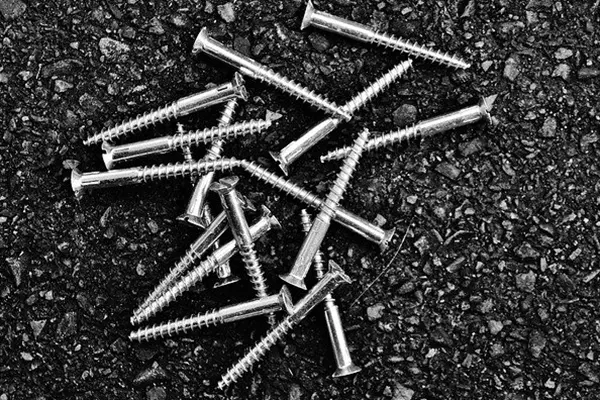Zinc plating is a common method used to protect metal, such as steel, from corrosion. It involves coating the metal with a thin layer of zinc. This layer acts as a sacrificial anode, meaning it corrodes preferentially to the underlying metal. However, the effectiveness of zinc plating can vary depending on several factors, including the environment and the quality of the plating.
Understanding the Rusting Process
Rust, or iron oxide, forms when iron is exposed to oxygen and water. The zinc coating on a screw acts as a barrier, preventing direct contact between the iron and these elements. However, if the zinc coating is damaged or worn away, the underlying iron can be exposed to the elements and begin to rust.
Factors Affecting Rusting of Zinc-Plated Screws Outside
Several factors can influence the rate at which zinc-plated screws rust outdoors:
-
Environmental Conditions:
- Humidity: High humidity accelerates the corrosion process.
- Salt Exposure: Saltwater environments, such as coastal areas, can significantly increase the rate of corrosion.
- Temperature Fluctuations: Frequent temperature changes can weaken the zinc coating over time.
- Pollution: Air pollutants, such as sulfur dioxide and nitrogen oxides, can contribute to corrosion.
-
Quality of Plating:
- Thickness of the Coating: A thicker zinc coating provides better protection against corrosion.
- Uniformity of the Coating: A uniform coating ensures consistent protection across the entire surface of the screw.
-
Type of Zinc Plating:
- Electroplating: This method involves applying a thin layer of zinc to the metal surface through an electrolytic process.
- Hot-Dip Galvanizing: This process involves immersing the metal in molten zinc, resulting in a thicker and more durable coating.
Preventing Rust on Zinc-Plated Screws
While zinc plating offers good protection against rust, there are additional measures you can take to further enhance the longevity of your screws:
- Choose High-Quality Screws: Opt for screws with a thick, uniform zinc coating.
- Apply Protective Coatings: Consider applying rust-resistant paint or sealant to the screws, especially in harsh environments.
- Regular Inspection: Periodically inspect the screws for signs of corrosion, such as rust spots or peeling zinc coating.
- Replace Damaged Screws: If you notice significant damage to the zinc coating, replace the affected screws promptly.
Conclusion
In conclusion, zinc-plated screws can provide excellent protection against rust, especially in mild environments. However, factors such as environmental conditions, the quality of the plating, and the type of zinc plating can influence their durability. By understanding these factors and taking preventive measures, you can significantly extend the lifespan of your zinc-plated screws and minimize the risk of rust.
Post time: Nov-18-2024















